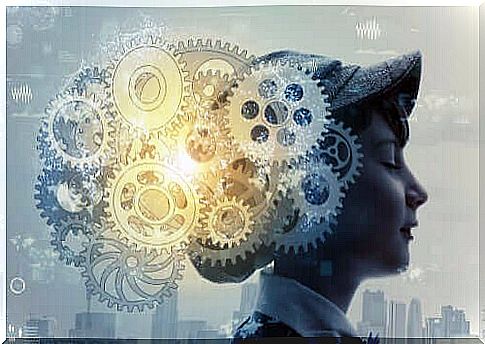The Elastic Mind: The Skill We All Should Be Training

Albert Einstein said that the real potential of our intelligence lies in our ability to change. Being able to adopt new perspectives and new ideas, banishing concepts that no longer serve us is one of our greatest virtues. It is therefore not surprising that in the field of psychology, and also of art, a new concept has emerged with force, that of the “elastic mind”.
A few years ago, the Museum of Modern Art in New York, MoMA, organized an exhibition representing this same idea. Our society and human being live in a time when everything is constantly changing. Science and technology are increasingly influencing the way we deal with reality, work, build relationships and even understand the world.
Thus, in books as interesting as Design and the Elastic Mind , by architect Paula Antonelli, director of research at MoMA, we speak precisely of the need to develop more elastic thinking. Only in this way will we be able to survive and perform at our best in a constantly changing environment, in which we are almost forced to improvise, to react quickly to solve more than one challenge.
Achieving this goal is not exactly easy, the brain is usually very resistant to change and lives a lot in its comfort zones. However, teaching our conservative minds to be more innovative and flexible can help us generate very positive change.

The characteristics of the elastic mind
If we were to talk about a mental quality that we should all train, develop and apply in our daily lives, it would undoubtedly be cognitive flexibility.
On the other hand, a frozen mentality, which continually bumps into the unknown and uncertain, is also the prerogative of many human beings. They are people who do not admit to criticism, who do not deal with failures or mistakes well, and who also tend to avoid challenges for fear of failure.
Knowing this, we should reformulate the concept of talent. So, while it is true that some people have a natural disposition towards certain skills (music, art, engineering), this advantage will not allow them to achieve success or well-being if they do not also have a mind. elastic. It is the ability to open up to new paradigms and apply a series of very concrete processes that really scores the advantage. Let’s see what it is.
Getting used to ambiguity
Things are never black and white. Our reality unfolds in an unattractive gray scale that we have to get used to. In this way, the elastic mindset gets used to the uncertainty that defines many things around us : the work you take for granted today may be lost tomorrow, the person who bets on us today may take us away. his support, etc.

The elastic mind goes beyond conventions
The conventional is that safe space that is so easy to get used to. It gives us a feeling of permanence, calm and groundedness. However, if there is one thing we need to understand, it is that life is not static, it flows, varies, changes, and often moves with rapidity. One way to survive these changes is to be able to innovate, to go beyond the conventional.
So, to develop innovative thinking, we have to start relying on our creativity and intuition. Such a thing can only be achieved by observing, but by being able to see beyond, perceive needs, new perspectives and apply proactive behavior.
Tolerance for failure: a mistake is a learning experience
Tolerance for errors and the way we deal with them says a lot about us. While the fixed mindset gets stuck and tends to avoid situations where it does not feel competent, the elastic mind applies another vision. He understands, for example, that failure is not a reason to give up certain things, it is an opportunity to learn and that a forced step back is often a way to gain momentum.
A brain that never stops questioning itself and thrives on curiosity
If we had to give the example of a figure who knew how to apply the elastic mentality throughout his life, we would highlight Leonardo da Vinci. The man of the Renaissance par excellence did research like no other in the field of knowledge through observation, experimentation and daring.
We all know he was ahead of his time in many areas. He achieved this thanks to this gift that we all have and which generally has its greatest luminosity in childhood : curiosity. The elastic mind not only does not fear change, but seeks it because it is motivated by a constant need to know.
In conclusion, as psychiatrist Robert Cloninger points out, if we are receptive to novelties and changes in our daily life, and if we accept them fearlessly and creatively, our personality will be strengthened. The resilient mind that dares to stretch beyond its comfort zone will never be the same again.










